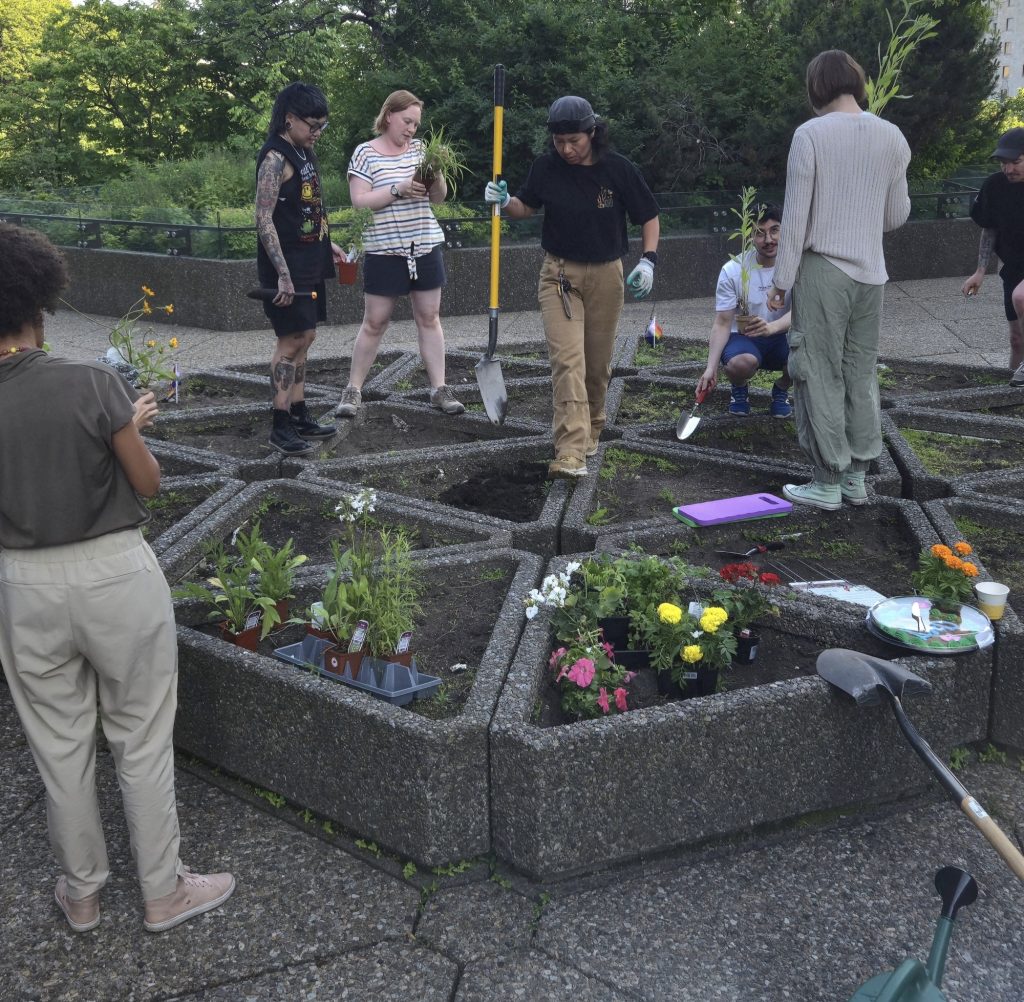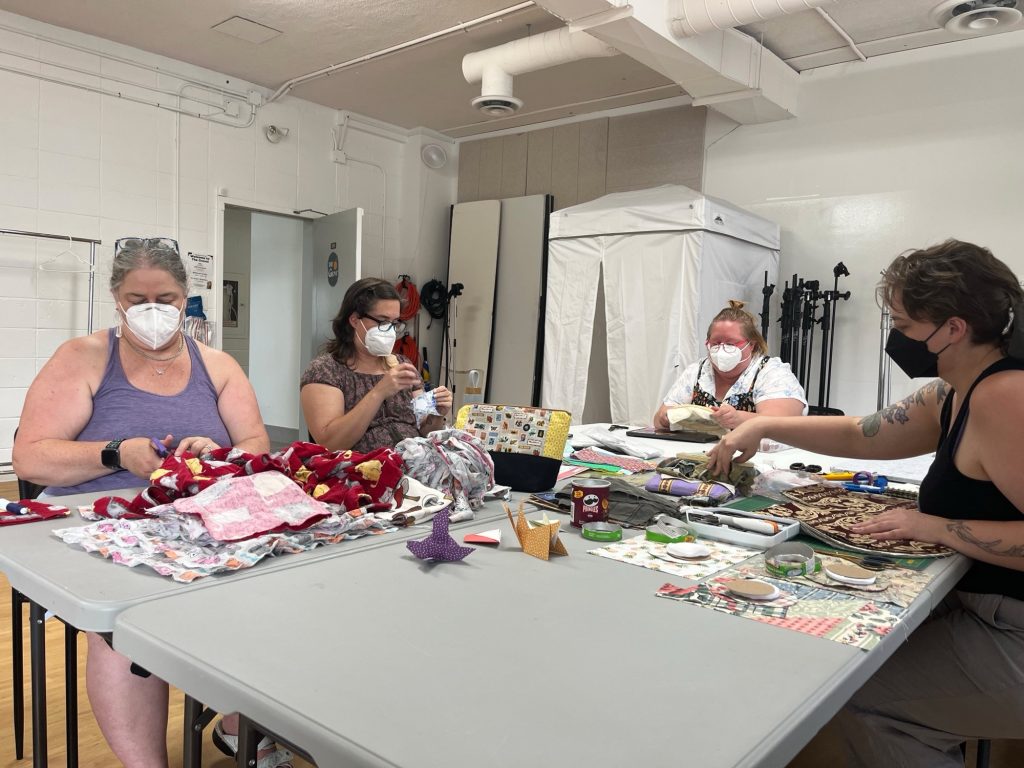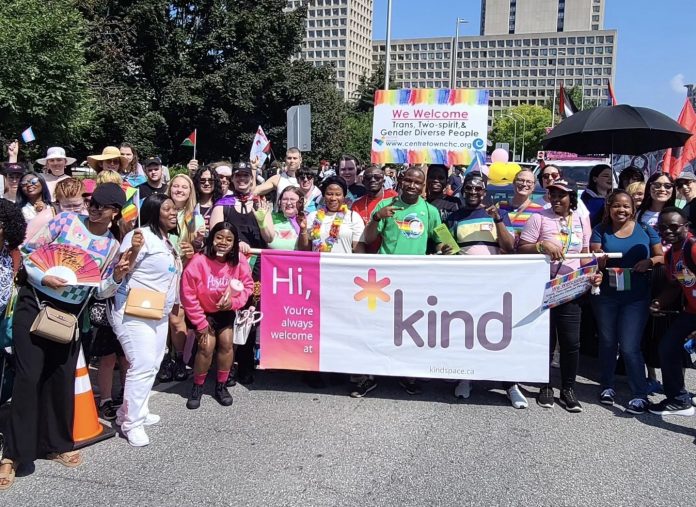In a capital city where queer and trans communities have long fought for visibility and inclusion, local LGBTQ2S+ groups continue to offer safe spaces in what could seem like an increasingly dividing world.
While much progress has been made since the gay-bashing days of the ‘70s and ‘80s, homophobia is on the rise. In 2023, Statistics Canada reported that hate crimes targeting sexual orientation increased 69 per cent from the previous year. And now there has also been a growing push in many parts of the world to reverse decades of progress, especially within the trans community.
Across the border, executive orders have been signed which declare gender must be recognized as a fixed, binary status as determined at conception. Gender-affirming care — including puberty blockers and hormone therapy — for Americans under the age of 19 have been banned. And transgender people have been banned from serving in the military.
Even here in Canada, the transgender community has been dealt some blows. Saskatchewan enacted Bill 137 which required parental consent before a child under 16 could use their preferred name or pronouns in schools. In Alberta, a suite of bills were passed banning gender-affirming surgeries for those under 18 while also restricting puberty blockers and hormone therapies for youth under 16 unless certain conditions are met.
Ontario has stated it has no intentions of enacting similar legislation, but the scaling back of rights has many people worried.
At Kind Space, an Ottawa LGBTQ2S+ community centre which has been in operation since 1984, demand has recently increased.
“The world is pretty terrible for a number of reasons; everything happening in the United States, the varying genocides happening in the world, but also the way that has manifested in Canada as well,” said Carling Miller, executive director at Kind Space. “All of that has taken a toll on people’s ability to function. People are coming in and having conversations with us. There is more anxiety, and people want to feel like they have some kind of control over things that feel uncontrollable at the moment.”
To meet that demand, counselling capacity has recently been tripled to give people struggling with any issue more support. As a result, the wait-list for short-term counselling has been moving quickly.
“It’s not centred solely on if people are having struggles around their sexuality or gender. It could be people struggling with stuff around work, family, homelife, depression or anxiety,” said Miller.
Kind Space has also been able to keep its Trans ID program running through the summer thanks to a partnership with Pro Bono Students Canada. While it typically only runs during the school year from September to April, some of the students decided to keep the endeavour going.
“There’s lots of places that require ID verification for various different services that you’re trying to get, jobs, or even housing applications. For lots of people, it’s also a pretty major safety issue to make sure that your ID is matching your gender and your gender presentation,” said Miller. “There is lots of paperwork to fill out and it can be long and complicated. If you miss one small section or check the wrong box, then you’re waiting weeks for a rejection, only to do it all over again.”
Outside of their support services, Kind Space also has a mini food bank where its clients can take some food and a clothing drive to help those in need.
The LGBTQ2S+ organization has also needed to take on more of an educational role after other groups lost funding. In August, it plans to start system development resource mapping for LGBTQ2S+ refugees.
Finding community through shared interests
If you’re a member of the LGBTQ2S+ community in Ottawa, it can be hard to find a footing. The Lookout Bar in the ByWard Market is a hangout spot for young queers, with T’s Pub on Somerset Street West a regular place for the older crowd.
But what if bar hopping just isn’t your thing?

For the last two years, the Ottawa Gay Garden Society has been planting roots for friendship. The endeavour was started by Kyle LeMay who said LGBTQ2S+ groups which existed in the capital just didn’t pique his interest.
“I think a lot of people like gardening, but many of us don’t have garden space of our own. A lot of people in our group are renters or people without yards,” said LeMay, who rents in Centretown. “We are capitalizing on unused spaces, little right of way spaces and little planters, and then having meetups so that people have a space to do things like that in.”
On average 15 to 30 people attend each meetup. It currently looks after multiple garden beds on the rooftop of the National Art Centre which it’s turning into a wildflower meadow. The group also looks after a sidewalk garden on MacLaren near Somerset.
LeMay said getting out in nature is a perfect way to escape life stress and the never-ending cycle of negative headlines.
“So much of the news cycle is depressing or scary, especially when you think about American news. We can’t influence a country to our south’s politics, but we can plant flowers and we can grow trees and we can support pollinators. So I feel like that unites people to a good cause,” he said.
Another group known as the Ottawa Queerly Sewcial Circle is also stitching together communities. It was started by Josephine Neilsen who struggled to find her place after moving to Ottawa on and off over 20 years.
“I think I felt a little too old to be in a lot of the queer spaces in Ottawa, being in my late 30s and a little too young to be in other queer spaces. There was nothing really that I felt made sense for me in that way,” said Neilsen. “A lot of the sewing and crafting areas that I encountered were very straight, and after COVID, I just wanted community.”
Neilsen’s partner suggested she start her own group and the rest was history. Expecting only two of her closest friends to show up, the first meetup brought 18 people, then 20. It just kept growing.

Meetups were first held at the Grove Studio in Hintonburg and have since relocated to Chinatown. They meet monthly, but spontaneous other events are also held, including pine needle workshops and craft swaps.
“I try to make it as welcoming and clear that it’s available to everyone — allies included — because there is no point in cutting ourselves off into little groups. I think we need to foster community amongst everyone,” said Neilsen.
During the sewing group’s recent one year anniversary, Neilsen held a fundraiser for Wellington West’s Ottawa Trans Library which raised just over $1,700.
She said it’s important that everyone does their part to make the world a better place for LGBTQ2+ people.
“I am privileged in that I am a white female and my partner is a cis man. I’m very passing in the hetero normative culture that we live in. But it’s still scary because I know that others are going through so much and that even though I may not be physically in danger, my heart is in danger,” said Neilsen, who identifies as queer. “My insides, who I am, feels like it’s being physically attacked even though I am predominantly safe in the physical way.”
